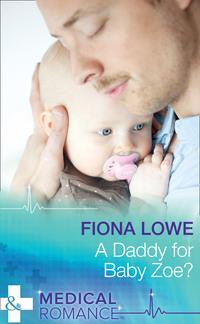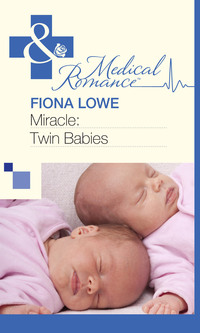
Полная версия
Four Weddings
His gaze flickered, a small flare of … what? She couldn’t pin it down. Amusement quickly rolled in as his trade-mark grin streaked across his face at the ridiculous idea.
She laughed again, this time a true laugh, sharing the joke with someone who truly understood.
A sudden feeling of emptiness thudded through her. Crossly, she shrugged it away. People might want to matchmake but love didn’t work for her. If she’d ever believed it could, she’d had the idea knocked out of her at twenty, proving how wrong she could be.
‘What about the children, Tom? Do you skin-check them when you visit?’ She asked the question, needing to fill the silence between them.
‘If their families are concerned, I check them out for lesions but all of them have had the preventative immunisation using the BCG vaccine.’
She wrinkled her nose. ‘BCG—I thought that was for tuberculosis?’
He nodded. ‘It is but it has a small protective effect against leprosy. As long as people don’t come into repeated direct contact with the lesions, they’re unlikely to get the disease.’
They worked consistently through to the end of the day.
Bec lost count of how many different wounds she bandaged but she had a long list of items the villagers needed filed in her head. A Rotary Club at home might ‘adopt’ the village and source used crutches and wheelchairs. She’d write a few letters as soon as she had a chance.
‘The village wants to give us a fish barbeque dinner at the beach.’ Tom stowed away the last of the supplies. ‘I’ll race you there.’
She plonked her hat on her head. ‘You’re on!’ She shot out the door ahead of him, racing along the neatly maintained gravel paths, dodging overhanging palm fronds and brilliant purple bougainvillea.
As her foot hit the sand, Tom dashed past her, straight into the middle of a children’s soccer game. He ran backwards, dribbling their ball, his face alive with the joy of life. ‘Come on, join in.’
As she watched him, a companionable and easy warmth spiralled inside her, relaxing her. This was exactly the sort of uncomplicated situation with Tom that she could handle.
She paused to catch her breath then jogged over to one end, taking her place next to the diminutive goalie.
‘Stop ball,’ instructed the boy, who looked about ten.
A line in the sand marked the goal. Bec smiled at his determined expression and nodded. ‘Stop ball.’
With yells and squeals the children charged up and down the beach, dribbling, kicking and bouncing the ball off their heads. Bec was struck by the similarities between Australian and Vietnamese kids—they all loved soccer.
Tom enjoyed keeping possession of the ball and his height gave him a great advantage. Undeterred, the children’s legs powered through the sand, their arms pulling at his shirt, trying to take him down.
She tried to imagine what he would have looked like as a kid playing sport, although he would have played Aussie backyard cricket.
He turned to find her, his eyes seeking hers.
Almond-shaped eyes.
Eyes the identical shape of the kids’ he was playing against.
Realisation thudded into place. She consciously had to breathe. Some Vietnamese blood ran in his veins. Somewhere in Tom’s past he had a Vietnamese relation. How had she missed it before?
She’d spent three weeks with the man. You’ve been too busy admiring his other assets.
She shushed the voice in her head. Anyone could have missed the connection. His height, his Western nose and quintessential Australian manner gave scant clues. So why had he not mentioned it to her?
The game swirled around them but the ball didn’t come near Bec or her buddy as most of the action was down the other end of the makeshift field.
The young goalie shuffled his feet in the sand.
Bec understood. Not only was being goalie a big responsibility, it was often downright boring.
Suddenly the ball hurtled towards them, high in the sky.
The young boy jumped valiantly and missed.
Bec threw herself sideways, arms outstretched. The skin on her palms burned as the ball hurtled into her hands. She rolled on the sand, clutching the precious trophy.
Cheers surrounded her. Small hands touched her back as she sat up. This was what she believed in. Children having a childhood, being able to play even when other things in their life were tough.
Larger hands hauled her to her feet as smaller hands continued to pat her. Golden arms hooked around her waist and suddenly she was airborne.
‘Now, that’s what I call a spectacular save.’
She looked down into dancing eyes, alive with exhilaration and the wonder of life. Happiness rushed through her. ‘It was pretty special, wasn’t it?’
He laughed as he set her feet back on the ground, his arm still holding her body against his. ‘We can’t have you getting too puffed up about it. I’ll get the next one past you.’ He ducked his head, his lips sweeping across hers with a feather-light touch. Almost imperceptible.
Battering every protective defence.
Desire thudded through her, sucking the breath from her lungs, stripping the strength from her legs.
And then he was running back down the beach.
Bec stood immobilised, her body tingling from head to toe, catapulted into sensory overload from the lightest touch she’d ever known. Her tongue darted out, tracing her lips. Tasting him. Tasting Tom.
Heat mingled with salt and spice and she savoured it, needing to memorise his scent and flavour. Keeping it with her, making it part of her.
She’d never been kissed like that before.
Kisses had always been demanding or threatening—taking, never giving. This had been neither of those things. This had been … Wonderful. Amazing. Terrifying.
She didn’t want to feel like this.
She refused to feel like this. Feelings like this meant danger. She knew that. It was why she didn’t get involved with anyone.
That was hardly a kiss, Bec. It was a dare.
She glanced over a sea of black-haired boys to the tall black-haired man, whose face was streaked with wiliness and who was aiming a ball straight at her.
It had just been a dare. Of course it had. Everything was the same as it had ever been between them. Colleagues who respected each other and got along well.
Then he grinned at her.
Part of her protective wall melted.
The ball shot straight past her, into the goal.
CHAPTER FIVE
‘WHAT’S ON THE agenda today, boss?’
Tom looked up from reading the letter from his mother that Health For Life had couriered to him from Hanoi.
Bec sat down opposite him and bit into a croissant, the buttery flakes clinging to the edge of her lips.
He clenched his fist under the table to silence his fingers, that screamed to be allowed to brush the crumbs away. His lips tingled, demanding to kiss the crumbs away.
That was not going to happen.
He’d stolen a kiss at the soccer game two days ago. The memory of the softness of her lips against his had stayed with him, revisiting at regular intervals. He hadn’t planned to kiss her, but when she’d looked at him with her eyes shining like sun-kissed water, with her warm body pressed in against his own and her hidden curves fitting against his body, a kiss had seemed like the most natural thing in the world.
But that didn’t mean it had been the right thing to do or that he should repeat it.
He refilled his coffee cup with the strong, fragrant brew the Vietnamese specialised in. An early-morning heart starter. ‘You can have a day off today and visit China Beach. It’s Vietnam’s premier surf beach. It’s gorgeous and it was made really famous by a TV show.’ His chatty tone sounded forced even to his own ears.
She narrowed her gaze, her face sceptical. ‘Hmm, and are you taking the day off?’
He squirmed under her penetrating gaze. ‘I have some paperwork to do.’
She sipped her coffee. ‘Hin mentioned something about going to an orphanage.’
Hell. He’d wanted to go to this orphanage on his own. It was one of four left on his list to visit. He needed to study the records, the lists of children who had been housed there. He was looking for clues, a needle in a haystack. Hoping for some tiny piece of information that might send him to his biological mother and end his two-year search. ‘I’m visiting the orphanage.’
She set her cup down very carefully. ‘Is that code for “You can’t come, Bec?"’
Guilt twisted inside him. ‘Anyone can visit an orphanage and, heaven knows, there are plenty of them.’
A flash of irritation rippled across her vibrant eyes, chased away by curiosity. ‘But you would prefer to go on your own?’
Damn it. She was too perceptive. Nothing got past her. He’d have to bluff his way through this.
Act casual. ‘I thought you’d enjoy a day off and you can take in some history at the same time.’ Liar. ‘But, sure, you’re welcome to come. I do have some admin work to do there, but while I’m busy with that I’m sure the kids would love a visit from you. But personally I’d choose the day at the beach.’
She tilted her head and wrinkled her nose, considering his answer. ‘Great. I’ll just put on some sunscreen.’ She stood up.
He breathed a sigh of relief. For the first time since they’d met she was actually showing some sense and taking time off.
She fixed him with a steely look. ‘I’ll be ready to leave for the orphanage in five minutes.’ She walked out of the room.
Hell, she’d outplayed him again.
* * *
Nothing.
Tom pushed the slim folder away from him, trying to halt the familiar rush of sadness that threatened to overcome him.
Hopes raised. Hopes dashed.
Hin squeezed his shoulder. ‘Records were destroyed in 1975. Sorry.’
Tom took in a deep breath at the familiar story. ‘Yeah, thanks for trying.’
He thanked the orphanage administrator by presenting her with a gift, and then he left the office.
‘You have three more orphanages left on your list?’ Hin walked beside him.
‘I have. But right now I think I need a break from this.’
Hin nodded, understanding on his face. ‘Just let me know when, and I will come with you.’
‘Thanks, mate. I appreciate your support.’ Tom shook his interpreter’s hand.
‘Catch you later. Now I’m going surfing. You’ll find Bec with the babies.’ Hin grinned cheekily as he strolled out of the grounds.
Ever since the old woman had insisted that Bec was the woman for Tom, Hin had taken every opportunity to tease him about her.
Shaking his head at the need for humans to matchmake, he crossed the yard toward the baby room of the orphanage. On the way he promised a group of primary school age boys a game of soccer after their classes had finished.
He pushed open the nursery door to a sea of cots. His heart contracted in pain. Sixty cots lined up in rows with only enough space between them for the staff to walk sideways up the narrow aisles. Babies lay on their backs, staring at mobiles, their little legs kicking out from blue and white gingham nappies.
Bec stood in the middle of the room holding a baby against her chest, her cheek resting against the crown of the child’s head.
She raised her head and turned toward him, a trail of tears staining her face.
His heart lurched from one pain to another. Orphanages confronted every belief and value a person held, and offered up a brutal mix of reality and hope.
He flattened the urge to wrap her in his arms and protect her. Not that he could.
He made his way over to her, trying not to knock the cots. As he drew closer he realised the child she held was over a year old and his legs hung down against Bec, completely lacking in tone. His almond-shaped eyes, dark and blank, tore at him.
He plastered a smile on his face. ‘Who have we here?’
‘This is Minh. He’s got mild cerebral palsy and I think his hearing is impaired.’ Bec’s voice cracked. ‘I just had to pick him up. He looked so much like he needed a cuddle.’
‘Every kid here needs a cuddle.’ He ran his hand over the child’s head. ‘The staff do their best and we have some fabulous volunteers. They come for three months and run some great programmes in orphanages across the country.’
‘But this little guy needs physiotherapy and probably a hearing aid.’ Bec kissed the top of his head before laying him down in the cot, carefully placing a stuffed toy in his hands. ‘In Australia his disability would be categorised as mild to moderate and there would be so much assistance he could get to maximise his potential.’ She turned to him. ‘He needs a loving home. What about overseas adoption? That would be perfect for this little guy.’
‘No.’ The word cut through the air, cracking harshly like a stock whip.
Bec started and flattened herself against the cot.
Hell. Regret showered through him. ‘Sorry, I didn’t mean to startle you.’ He extended his hands palms upward, a gesture of appeasement. ‘It’s just that every Westerner thinks overseas adoption is the solution.’
‘And you don’t agree.’ Her shoulders dropped, relaxing into their normal position. Her face studied him, keen with interest.
He shook his head. ‘No, I don’t. I think we improve things here so they can live in their country of origin.’ His chest tightened. He walked toward the door, suddenly needing to get out of the crowded room, needing to be in the open space of the garden.
‘And what if that isn’t in their best interest?’ Bec spoke the moment they were outside.
A muscle near his eye started to twitch. ‘How can leaving their country be in their best interest?’
‘Is institutionalised care in their best interest?’ Her voice tugged at him.
He folded his arms across his chest. ‘If they can be protected, well fed and schooled, yes.’
‘But not loved?’ Her words gently probed.
‘The staff here care greatly.’ Defiance clung to his words.
‘I don’t doubt that. But if their parents cannot care for them or have rejected them because of a disability, and no one else wants to welcome them into their family, surely that is a reason for overseas adoption?’
‘Overseas adoption is not nirvana for any child. It creates a unique set of problems. Problems that can be greater than the ones they face here.’
‘I find that hard to believe.’ She raised her chin, her jaw jutting out in a streak of stubbornness.
‘You have no idea what you’re talking about.’ Frustration screamed inside his chest, desperate for release.
Her brows shot to her hairline. ‘Oh, right, and you do? You’ve gone all political on me.’ Indignation laced her words. ‘There’s a little boy in there with vacant eyes because he has no stimulation. He’s cut off from participating in the world because he can’t hear. With no access to physio and splints he’ll have no opportunity to walk, either. But you’re telling me he’s better off here, deaf and crippled? Oh, please, give me a break.’
Exasperation spilled over. ‘He’ll know who he is and how he fits into the world. His life won’t be filled with unanswered questions.’ Blood pounded in his ears. He needed to stop this conversation. ‘It’s hot. I’ll shout you a sugar-cane juice.’
He started to walk toward the street vendor outside the orphanage gates. ‘Mia da.’ He held up two fingers and handed over the money.
The vendor pushed sugar-cane stalks through a large mangle, the contents dripping down into a plastic jug. He added lime juice as he poured the sticky liquid into two glasses.
Bec had already seated herself on a low plastic chair under a large, shady tree. Tom put the glass down in front of her on a small table and sat down.
‘Thanks.’ She picked up the glass, sipping the refreshing drink.
Silence hung between them. They sat watching the usual bustle of cyclos and motorbikes weaving around the pedestrians. Street vendors carried rambutans and dragon fruit in baskets, which hung from long bamboo poles that rested on their shoulders.
Tom relaxed, letting the noise of the street drive away the disappointment of the day. Soaking up the place of his birth even though he was no closer to finding any answers about his mother.
Bec drained her glass and put it down on the plastic cloth. She glanced up at him, her face neutral, with no sign of her previous indignation. The lines around her eyes crinkled slightly as she spoke. ‘You’re an overseas adoptee, aren’t you?’
Her words barrelled into him with the force of a cannon, leaving a trail of emotional destruction in their wake. He’d dodged every question she’d ever asked him about his personal life. He hated the curiosity factor his story generated. But this time her question had hit with pinpoint accuracy and he had no place to hide.
Bec watched the colour drain from his face, emphasising his high cheekbones and the hint of black stubble around his mouth. Handsome and hurting.
She forced herself to stay silent and waited for him to speak.
He took in a deep breath. ‘I was born in Vietnam but I was part of Operation Babylift and was evacuated for overseas adoption at the end of the war.’
Surprise rocked her. ‘Oh, my God, you’re part of this country’s history, part of Australia’s history.’ She’d read all about the mass evacuation of children as Saigon fell.
He nodded, his brow creasing in amazement that she knew the story. ‘Thousands of orphans were bundled onto planes and taken out of the country. Most went to the US but about two hundred and fifty of us went to Australia.’
He sounded like he was reciting from a textbook.
Factual, completely unemotional.
Protecting himself. A shaft of pain gripped her heart. ‘How old were you?’ Her voice sounded unusually soft.
‘One month. I had a note pinned to me with my date of birth on it. I was pretty sick, malnourished and dehydrated. Mum—my adopted mother—says I was the scrawniest baby she’d ever seen.’ He smiled, his face alight with a memory.
She looked at the tall, healthy man across the table from her, marvelling at how he’d overcome such a tough start in life. ‘You’ve certainly made up for it. Must have been all that fresh country air in Victoria.’
‘That’s me. I’m a walking advertisement for Dad’s dairy products.’ He grinned at her, white teeth flashing against a tanned face.
A deep, familiar longing spread through her at his smile. She set it aside, concentrating on Tom. ‘Do you know anything about your biological parents?’
He shook his head. ‘The note said, “Father dead. I love you."’ His voice cracked. ‘There was no name, and the note wasn’t signed.’
She reached out without thinking, stroking his arm, needing to support him. Feeling his pain. ‘Do you think your dad was a foreign serviceman?’
He gave a wry grin. ‘With this nose, I think that’s a given. He could have been Australian, American, perhaps French. Who knows? But my birth mother was Vietnamese.’
‘You’ve got her expressive eyes.’ The words had slipped out before she knew it.
He picked up her hands, encasing them in his larger ones. ‘Thank you, that’s the loveliest thing you could have said. I would dearly love to know what she looked like.’ His hands stayed resting over hers.
Warm.
Soothing.
Connecting.
His heat travelled through her on a river of bliss. She struggled to think. ‘So you came to Vietnam to find your mother?’
‘I came to Vietnam to find me.’
His stark words tore at her heart. The adopted child with a vacant family tree.
His breath shuddered out on a sigh. ‘I grew up in rural Victoria, the only Eurasian kid within a hundred kilometres. Before I was thirteen I didn’t think much about how I had come to be with my family. I just got on with growing up. I was an Aussie just like my mates. I belonged to the footy club, the cricket club and I helped Dad with the milking.
‘There was the occasional comment about my eyes from the school bullies but I had good friends and most of that washed over me. Although I guess I did wonder why I was being singled out. I didn’t feel different but the kids had noticed.’
‘And then the hormones kicked in?’ She knew all about that. She vividly remembered starting to question everything about her own family.
The color of his brown eyes deepened as a shared understanding crept in. ‘That’s right. Suddenly I had so many more questions than I had answers. “Who am I? Why did she give me up?” I didn’t feel I belonged in Australia and I didn’t know anything about Vietnam, I couldn’t even speak the language.’
‘Halfway between East and West?’
‘Something like that.’ His fingers trailed across the backs of her hands, tracing each finger.
Mini-explosions of bone-melting desire whipped through her, zapping her concentration. She delved deep, needing to keep on track, needing to hear his story.
‘Mum’s a nurse and one day when I was being a right pain at sixteen she suggested I go back to Vietnam as an adult, and give something back to the country that had tried so hard to keep me but couldn’t.’
‘She’s a really wise woman.’ Bec pushed away the sadness about her own mother who hadn’t been able to find the wisdom or the help to save herself. To save her daughter. ‘So you’re here and you’re giving back. Is it helping?’
He dropped her hands and sat back, avoiding her gaze. ‘This is my country. My people.’ His voice emphasised the words but frustration crossed his face.
‘What about your Australian mum and dad? How do they feel now?’
‘They’ve only ever encouraged me. At the start they joined me in the search, but their life is in Australia.’ A muscle spasmed in his jaw, his shoulders stiff and defensive. ‘And my life is here. Vietnam is the missing bit of me.’
A niggling feeling pricked her. His body said one thing and his words another. Did the truth fall between?
‘You’re still searching for your mother?’
He nodded. ‘This orphanage visit is part of that diminishing search. We’ve no idea which orphanage I came from.’ He shrugged. ‘I do it in stages. You need to gear up for this sort of thing.’
A stream of white-shirted children with red ties and blue shorts filled the orphanage grounds, their excited voices competing with the noise of the traffic. School was out.
Tom stood up quickly, the small plastic chair toppling behind him. ‘I promised the boys a game of soccer. I’ll catch up with you later.’
He’d deliberately ended the conversation as if he regretted telling her his story. She watched him walk away from her and stride toward the boys. Stride toward what he knew, aligning himself with people who understood. Kids abandoned like himself.
She had this utterly ridiculous feeling of wanting to hold him tight and shield him from the world. Make everything better for him. Find his mother.
But no one’s life was perfect and no one’s parents, real or imaginary, ever lived up to expectations.
Perhaps one day she should tell him that.
Sighing, she headed back to the nursery, planning to give Minh another cuddle. Hoping to see a spark of interest in his eyes.
CHAPTER SIX
BEC MANAGED TO carefully remove an insect that had become lodged in a ten-year-old’s ear. Heaven knew how long the bug had been in there but it was causing a festering infection and hearing loss.
Simple things could quickly become severe and disabling as medical attention wasn’t readily available in remote villages. As she applied antibiotic drops, Hin translated the continuing treatment for the child’s mother.
‘I hope they follow the instructions.’ She waved goodbye to the girl and her mother and then turned and smiled at Hin. ‘Take a break. I think we both need it.’
She and Tom were doing physical examinations on the children in a poverty-stricken village in the central highlands, a couple of hours drive inland from the coast. Her mind continued to grapple with the fact that children here had to leave school after receiving the most basic education, to work and earn money for the family. This diminished their prospects to go on and really improve their lives and those of their families.









